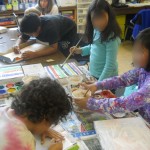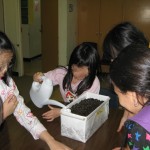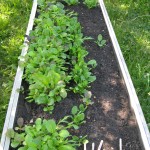“We need to shift our focus from an emphasis on product to the learning process.” Stuart Shanker
The purpose of education goes far beyond the delivery of content knowledge and skills. I believe it is imperative to give students room to direct their learning, in order to create room for creativity, unique intelligences, and a vibrant understanding of the process of learning. In order to encourage lifelong, self-directed learners it is essential to approach education as a process of inquiry.
The biggest area of opportunity in education I see, is in authenticating learning while adapting lessons to individual and unique students. I see education as being inextricable from our students’ lives, and I see genuine interest as the catalyst for quality learning. Students’ areas of interest create curiosity and direct their focus so that students naturally develop questions. In turn these questions provide a catalyst for the development of critical thinking and problem solving skills.
As I consider each students’ unique interests and learning style, I aim to provide opportunities for them to explore a wide range of activities that support their individual learning goals. Diversity and difference create a rich culture of varying perspectives, skills and ideas, and this should be fostered in our students.
In considering the importance of inquiry in education, it is important to remember that learning is messy. Mistakes need to happen in order for real learning to take place. Engaging students in their environments supports multi-sensory experiences and holistic learning. Both project-based learning and problem-based learning require room for surprises as we allow students more autonomy in their learning processes.
“…students, if given real freedom, frequently come up with very exciting learning experiences that they have developed on their own and from which they profit deeply. They can become searchers after knowledge, not passive and temporary recipients of it.” Carl Rogers
I believe that learning occurs as an interaction with the world around us. My role as a teacher, in facilitating student learning, is not so much about providing information, but rather giving students the opportunity to experience the process of learning taking place. Accompanying these experiences, I offer tools and techniques for enhancing the learning process with an emphasis on meta-cognition and a movement toward self-directed learning. This approach is reflected in the new direction Canada’s learning outcomes have taken; focusing more on core competencies and less on specific content material.

As part of my practicum I facilitated a Cultural Heritage unit. Students were encouraged to research their familial backgrounds, cultural heritage, and family stories through a variety of resources including books, atlases, computers, and interviews. The students came up with a variety of ways to share their findings with the class including important objects, pictures, posters, booklets, and art boxes that they had created.

During our Plant unit, students chose a plant or vegetable and researched the plant they chose. I provided them with websites where they could find answers to their questions, as well as extra resources to inquire further. We explored a variety of vegetables experientially; growing, eating, smelling, and inquiring about a wide range of plants and vegetables. Again, students had freedom within given parameters to decide what to research, and how to present their findings. Some variations included folders, posters, and presentations. Along with this unit, I used a scholarship I received to purchase tools for the garden and we cultivated vegetable gardens. We also had The Growing Chefs come to our classroom and with them we grew the vegetables from seed (before transplanting to the garden), learned about vegetables and nutrition, and made a variety of healthy meals.

Inquiry learning fosters what Carol Dweck calls a “growth mindset”, where students see themselves as constantly evolving with potential for increasing their knowledge, skills and abilities. She explains that, “by having a ‘growth mindset’ students are much better able to face the challenges of learning and to self-motivate” (Dweck 8).
When students understand that skills and intelligences are not primarily innate, but are cultivated, they can begin to appreciate the learning process as one of the most powerful skills we can develop. As a teacher, I strive to set an example for appreciating and celebrating the learning process, using assessment and outcomes to support learning, while emphasizing that learning is never complete but rather a lifelong process that permeates all aspects of life.
Dweck, C. (2007). Boosting student achievement with messages that motivate.
Rogers, Carl. (1983). Freedom to Learn. Columbus, Ohio: Charles E. Merrill Publishing Company.